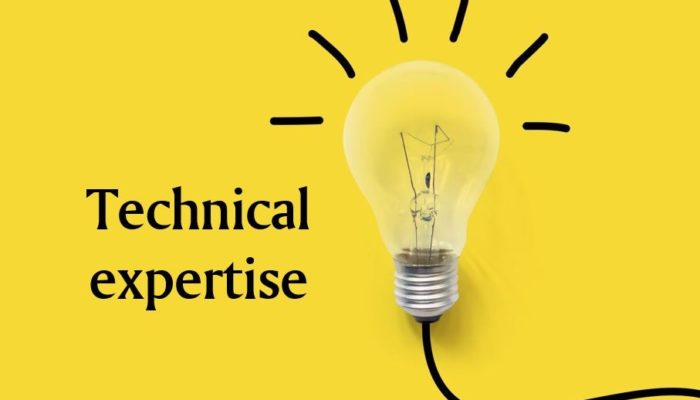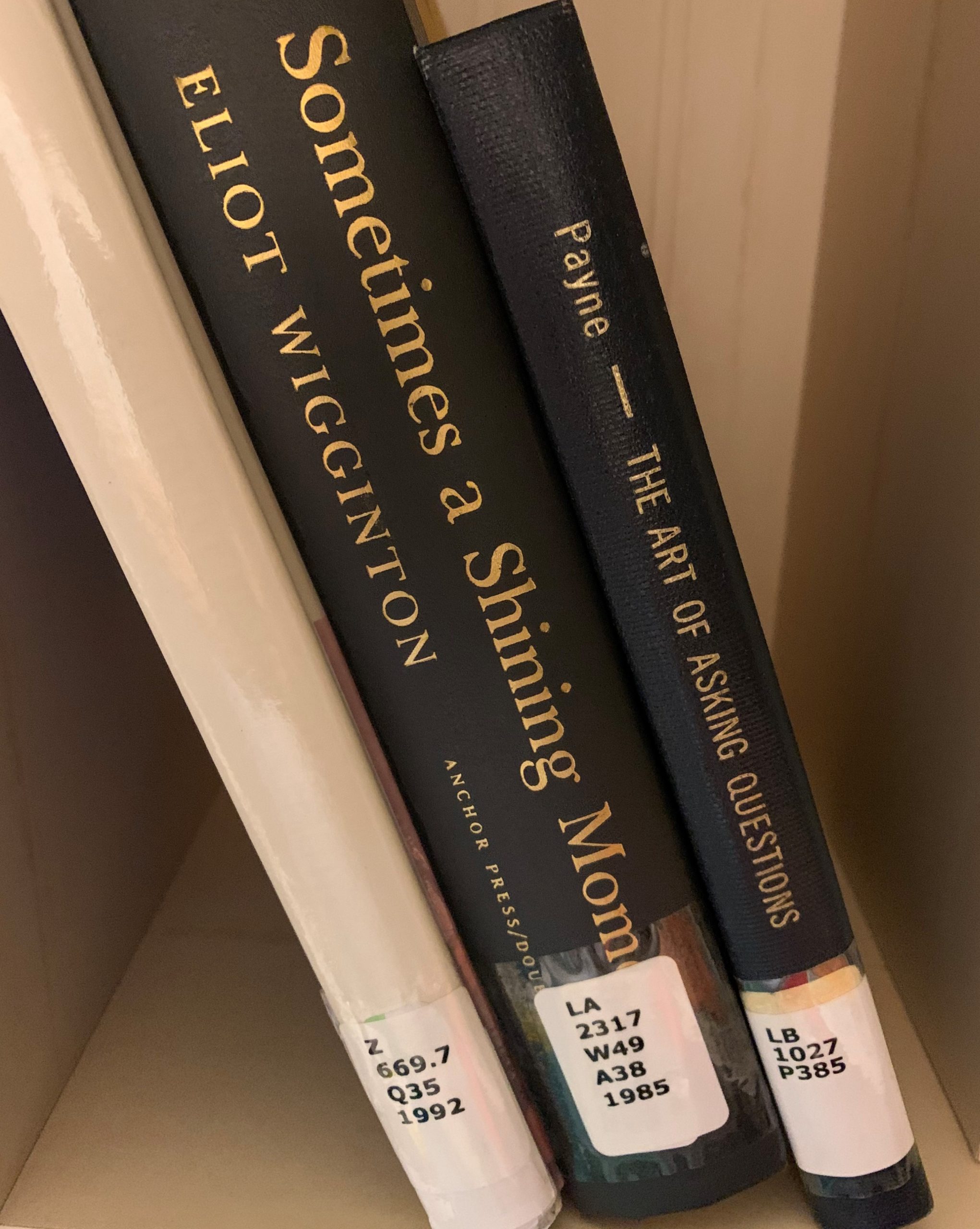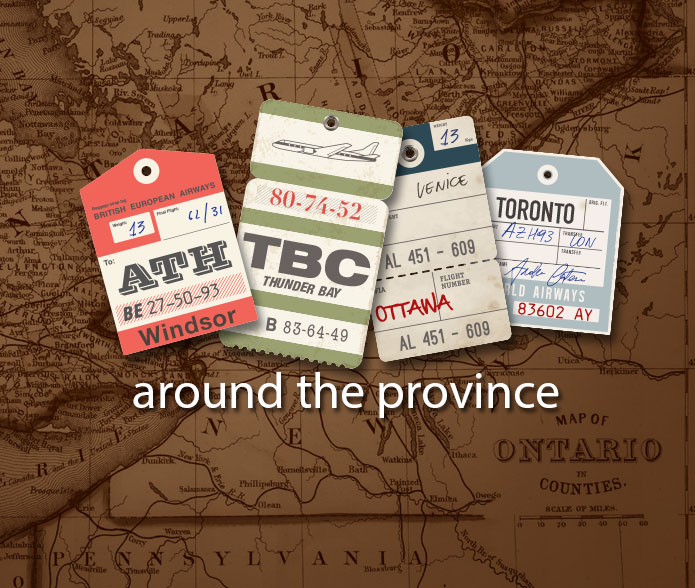Can mentorship help you in a career transition? Toby explores this as he recounts his decision to walk away from a tenure-track faculty position to become a librarian. Through OLA MentorMatch, he met with Jennifer Peters who helped him find where to focus on his job search.

A library tech perspective on job hunting, story time & more
Brianna Allen was a presenter in Round III of our June 2020 online panel discussion on work credentials: Librarians need an MLIS: True or false? Brianna’s answer to this question was “no”. Instead of choosing to pursue a graduate degree in order to work in libraries, she opted to do a library technician diploma. And she has no regrets.
She now has a fulfilling job with the Milton Public Library and in this limited series, she shares both her journey to finding her position with the library as well as some of the work that she does as a library technician. This month, she shares her thoughts on the art of preparing for interviews.
Part II: The art and science of interview prep
Each of us probably has a system we use to help us prepare for and participate in the interview process. My strategy includes having questions to ask the interviewer, a short list of criteria including ideas about terms and conditions of work, doing my homework so that I am ready for questions I have never heard before, and learning from past interviews. Although there may be an art to doing an interview, having a strategy for preparing for the process can help us practice a bit of science as well.
Here are some of the strategies I use to make the most of any interview.
Ask questions about the workplace
I strongly believe that when we are in a job interview, we are interviewing the interviewer as much as they are interviewing us. Before I started looking for a job I thought about what was most important to me in a workplace. Luckily, I had over 10 years of experience in the workforce prior to graduating and this experience gave me a good understanding of the kind of environment in which I would thrive – i.e., the environment that would bring out the best in me and motivate me to want to come into work. Here are some of the criteria that I use to evaluate prospective employers and workplaces.

Criteria one: Good communication with a manager
I thrive under managers who communicate regularly with me about my job performance and I define good communication as being open and honest about areas of my work where I succeed and areas in which I could improve. However, good communication with a manager also includes the manager being readily accessible if I have questions, and willing to consider my suggestions regarding my work. Most importantly, I work best when I have a manager I can be myself around, with whom I don’t always have to be serious, and who understands that I will probably make occasional mistakes. Finally, I also look for a work environment where coworkers are encouraged to communicate frequently so that I can feel safe asking for support from those around me.
In my last job hunt, I communicated these ideas and needs in my interviews and took the opportunity to ask the interviewer to explain their managerial/communication style. I also spoke to staff members who I met on the day of my interview, partially to get a feel for the people working at each library, and partially to make a positive impression. (I know that it’s always possible that the interviewer will ask staff members what they thought of me after I’ve left.)
Criteria two: A positive workplace culture
Good communication with a manager is one aspect of workplace culture, but it isn’t the only one. I also value a workplace culture where I feel safe to be myself–this creates a positive environment in which to work. For example, in one of my interviews I noticed that the Chief Executive Officer (CEO) was someone who enjoyed joking around with his staff members, so I quickly let my own joking nature shine. In doing so, I was able to share a part of my personality that can be an asset on the job and was able to confirm that this was indeed a workplace in which people could laugh and enjoy a joke.
Even if we can’t always pick up on all the verbal and non-verbal hints from those around us, if we are naturally relaxed and enjoy jokes, then I think it can make sense to show that side of ourselves during our interview. Our prospective employer(s) can then get a better idea as to who we will be in the workplace while allowing us to be more certain that we will be accepted for who we are if we are offered the job.
Another way to know if the company culture is a positive one is to ask the interviewer(s) what they like most about their job and the workplace. If they have a positive relationship with their coworkers then they are certain to mention it when asked this question.
Anticipate questions that might be asked (i.e., do the homework)
I always think about the questions that I might be asked in an interview and try to prepare my best answers ahead of time. I have learned, however, that while there may be “best practices” in terms of the types of questions that interviewers ask, not all questions are asked in all contexts.
I worked in customer service jobs for nearly eight years, during which I went through many interviews. By the end of this series of interviews, I was so used to the process that I rarely needed to prepare beforehand, aside from doing a small amount of research on a company. One of the outcomes of this process was that I became overconfident in my ability to interview well because I was often offered the job without having to spend hours preparing. What I didn’t realize was that my ability to perform well in these interviews was because retail interviews (the jobs I primarily applied for) from company to company are very similar. As a result, answering the most common questions became second nature to me, especially because virtually all of my previous work experience could apply directly to most of the jobs to which I was applying. I realized quickly that when I switched career fields, knowing how to answer questions in a retail situation did not prepare me for interviews in the library sector. Although there was some overlap between retail and the professional library jobs I was applying for within the library profession, this overlap was minimal.
Learn from interview mistakes
I’ve learned that I really need to do my homework on topics related to professional practice and the programs at a particular library that I might reasonably expect to come up in an interview. For example, at one interview for a position that included responsibility for leading storytime, I didn’t properly understand sensory storytime and didn’t do enough research into it to make up for my lack of experience. In retrospect, I should have gone to watch some storytimes at the library or other libraries to get a better idea of how they work.
On a more practical level, I’ve also learned that time management can be critical to performing well in an interview. For example, for one interview, I offered a friend a ride home, and then was unfamiliar with parking options close to the interview site. Being rushed and short on time was uncomfortable and I didn’t make the same mistake twice. At a subsequent interview, I scoped out the location ahead of time, and certainly knew where to park. I actually went into the library where I had an upcoming interview, met the staff and let them know I would be interviewing for a job soon, and studied the website.
On the bright side, we need to remember that each interview provides us with an opportunity to practice the process, even when we don’t land the job. We shouldn’t be afraid to fail and it can be helpful to make sure to review an interview afterwards to understand what we think we did well and what we could improve in the next interview. And, if we are really lucky, the interviewer will be willing to share feedback with us on how we did during the process.

Preparing for interviews can also be a great way to figure out where we need to improve our skills once we actually land a job. For example, I always found it difficult to answer the question, “How do you resolve a feud between two coworkers?”.
Reflecting on this question in the time between interviews, I realized that, and realizing I didn’t have a good answer taught me that I needed to focus more on strengthening my conflict management skills.
In an interview, when asked about your skills or how you might approach a situation, I think it’s best to offer specific examples of how you’ve used those skills or have dealt with a similar situation from your past jobs. Leading up to your interview though, you might find it hard to remember a concrete example of a time you dealt with an upset customer, or demonstrated good problem solving skills, etc.
When I noticed I often experienced this challenge while doing my interview prep, I decided to create a “question and answer” document to help me in in future interviews.
In this document I listed the common questions I’d encountered in past interviews, as well as stories from past and present work experiences that I could pair with the given questions to demonstrate my skills to interviewers. For example, after I discovered that the catalogue record and spine sticker for a book were different, I reported this discrepancy to our cataloguing team. I then filed this anecdote in my document under the “attention to detail” section. I’ve found that this habit makes it easy for me to prepare for upcoming interviews because I have a collection of stories to tell that demonstrate my skills.
I have also benefited from the OLA MentorMatch program and recommend this service to other library workers and future graduates. MentorMatch partners OLA members with current professionals who have gone through the interview process multiple times, or have even been on a hiring committee. These mentors can provide great insight into the kinds of questions that an interviewer might ask, and the criteria that future employers might use to evaluate candidates.
And, of course, sometimes we just get lucky in certain interviews – the stars align and the interviewer asks us questions that we’re good at answering because we’re properly prepared.
Final thought
Here is one last thought that might be calming for others entering the field. Now that I’m in my career, I realize that sometimes we new grads can feel a bit inferior because we don’t have as much experience as our colleagues who are well established in their work. However, maybe one of our superpowers is that we are new, wide-eyed professionals who are coming to work with fresh ideas and lots of enthusiasm. We lack experience but we also lack preconceived notions, partly because we are not comparing our environment to one in which we’ve worked in the past. I think this makes us open to change and this can be very appealing to employers.
Image (first) by Amy Hirschi on Unsplash
Brianna Allen is an early-career Library Technician currently working as a Service Associate with Milton Public Library. She is a recent graduate of Seneca College’s Library Technician program, and previously worked at Whitchurch-Stouffville Public Library as their TD Summer Reading Club Coordinator throughout the Summer of 2019.
Her passion for customer service drew her to a career in libraries, where she hopes to continuously improve her ability to provide patrons with the tools, information, and education they need. To her, public libraries are hugely important in the fight to narrow the gap between Canadians from lower income families, and those with wealth.
